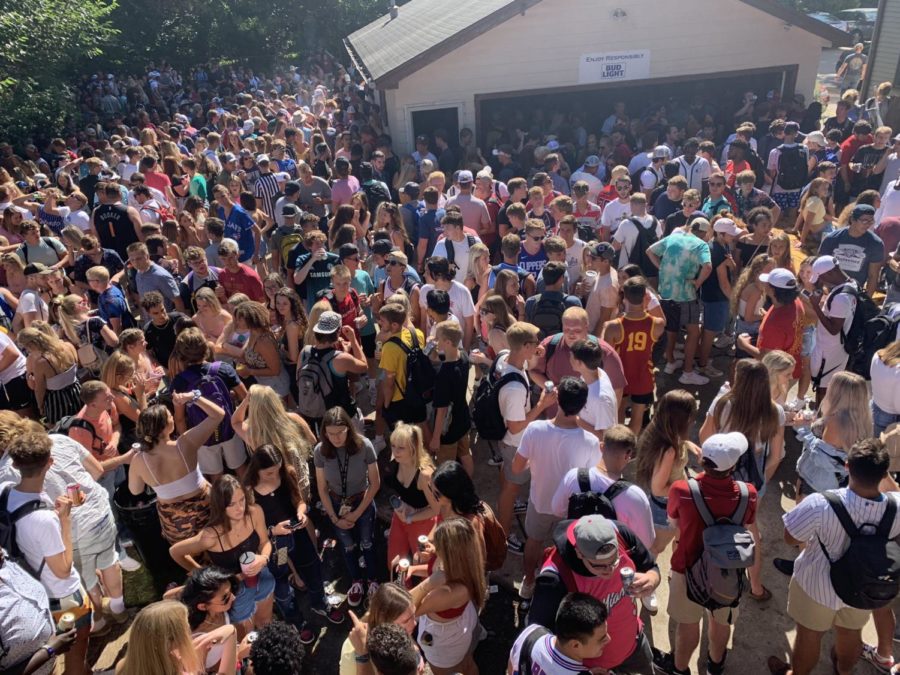Editorial: The repercussions of ‘801 day’
August 25, 2020
The Saturday before classes began, Iowa State University students demonstrated their lack of responsibility, empathy and respect for other Iowa State and Ames community members by celebrating “801 day” per usual — with all-day drinking, houses and lawns swarming with people and party hopping.
Footage of the maskless parties was appalling enough to gain harsh criticism on social media. One video of the parties gained over 31,000 views on YouTube and received national attention.
To add to the chaos, Iowa State and Ames police did little — aside from condemning the actions of the students — to enforce social distancing at these gatherings. Unfortunately, the repercussions of 801 day in the midst of a pandemic are difficult to immediately measure, but obvious once it becomes too late.
There is a danger in assuming all young adults are healthy and capable of easily overcoming COVID-19. Even if college-aged students may be more likely to survive COVID-19, there is still a large surge in this age group contracting the virus — oftentimes asymptomatic, making the transmission of COVID-19 even easier.
Furthermore, students and community members with compromised immune systems cannot afford to come into contact with COVID-19. The feeling of invincibility as a young adult is contributing to the spread of COVID-19 and it was extremely disheartening to see students shamelessly put their desire to party before the health of their peers.
While many classes are online, in-person and hybrid classes are still a large part of this semester, increasing the likely spread from 801 day partiers to classmates, professors, faculty and all of their families.
Should Iowa State have anticipated 801 day and taken proactive measures? Or was it the responsibility of the fraternities and sororities to denounce 801 day? While the blame game is easy to play, it doesn’t address the likely influx of positive COVID-19 cases at Iowa State.
Iowa State President Wendy Wintersteen’s recent email about enforcing social distancing policies proved the university is becoming increasingly concerned for the longevity of in-person classes because of instances like this. Several other campuses have already reverted to virtual learning after a week of in-person classes led to spikes in COVID-19 cases.
However, it also left many students unconvinced of real consequences. Suspension seems doubtful to many, but Drake University enforced two-week suspensions to 14 students after partying and Purdue University suspended 36 students for the same reason. Other policies, such as a three-strike system or monetary fines for students who refuse to abide by social distancing rules, may also prove to be effective.
Contact between students, faculty and community members will only continue to increase as time goes on, especially with in-person classes. It is the responsibility of every individual to adhere to social distancing guidelines. The entirety of the Ames and Iowa State communities will be largely impacted by 801 day events, which begs the question, was it worth it?
The bottom line is 801 day most likely shortened the (already cut short) duration of in-person classes and put people at unnecessary risk.







